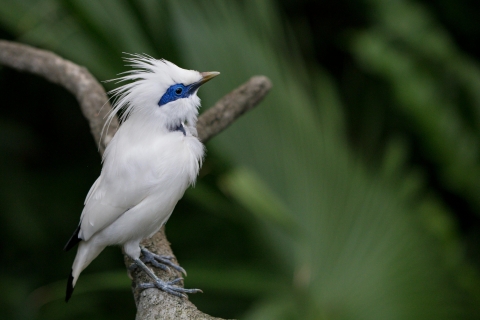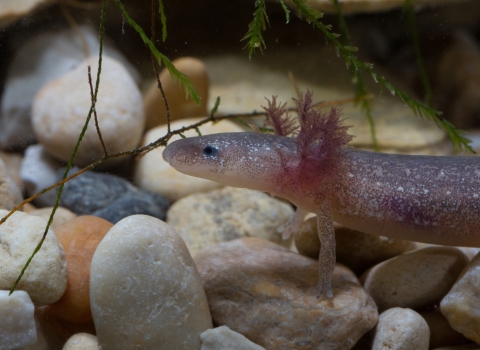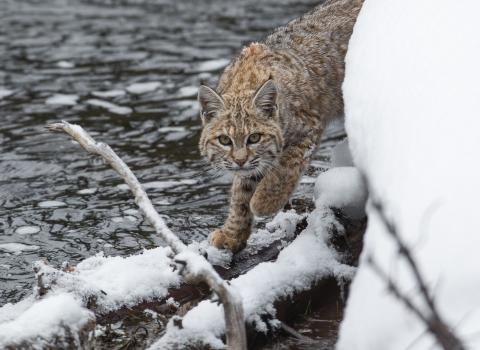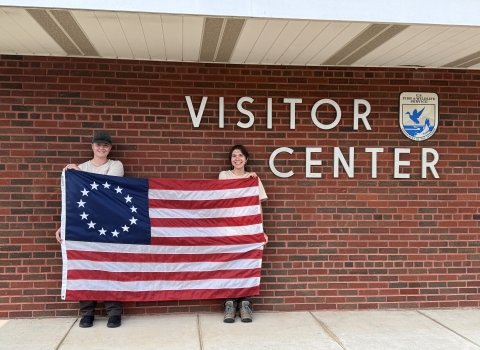In August 2017, U.S. Customs and Border Protection officers at Newark International Airport in New Jersey discovered more than 60 birds that hadn't intended to fly there.
The birds, native to Southeast Asia, were inside the luggage of a passenger returning from Vietnam. They were contained in small wooden cages wrapped in foil or newspaper, and concealed under plastic trays, metal utensils, and clothing — in an attempt to prevent an X-ray machine from detecting them.
The owner of the luggage had reasons to keep them hidden.
Nearly half of the birds were species that are protected by the Convention on International Trade in Endangered Species of Wild Flora and Fauna, known as CITES, which regulates trade to prevent exploitation.
One of them, the Bali myna, is also listed as endangered under the Endangered Species Act because it is at risk of extinction. Researchers estimate there are only 100 of them left in the wild.
The suitcases also contained a species that is prohibited from entering the United States because of its potential to cause harm: red-whiskered bulbuls, an eye-catching bird with a black crest and red cheeks, are listed as “injurious” due to their ability to damage crops, displace native birds, and spread the seeds of invasive plant species.
After finding the unexpected flock, the Customs and Border Protection officers called the U.S. Fish and Wildlife Service.
When officers at the airport interviewed the owner of the suitcases, he revealed that the birds weren’t his, stating through a translator, “Someone paid me to bring them.”
It wasn’t the first time the courier had been paid to smuggle birds into the United States on his behalf. U.S. Fish and Wildlife Service Special Agent LeeAnn Bies led a multi-year investigation that uncovered a systematic trafficking operation that exploited wildlife and people in source countries.
Unfortunately, it’s a common pattern: Locals in Vietnam and other Southeast Asian countries are paid next to nothing to catch songbirds in the wild and bring them to suppliers who negotiate deals with U.S. buyers and hand them off to couriers to smuggle abroad.
The U.S. buyers then sell the birds in the United States for a profit.
Gambling with birds’ lives
Given the harsh travel conditions — hours in close quarters with hardly any food or water, and little air — not all birds survive these forced flights. Only 20 of the 60 birds intercepted in Newark in August 2017 were still alive when Customs and Border Protection found them. Twelve others died soon after.
But the demand for these birds — as pets or status symbols — has made some feel it’s worth the gamble.
This was not the first Asian songbird smuggling investigation led by the Service. In both 2016 and in 2017, individuals were prosecuted for illegally importing songbirds to the U.S. through Los Angeles International Airport. In the first case, only two of the 27 smuggled birds died in transit. However, in the second, 85 of the 93 smuggled birds died.
Many more are illegally traded within Asia as well, often in large quantities. In 2023, the CITES Secretariat published a Global Assessment of Songbirds in Trade using data from the Wildlife Trade Information System, reporting eight songbird species native to Asia were seized in volumes exceeding 2,500 individuals between 2008 and 2020.
Just this fall, authorities in Indonesia seized a solitary truck carrying 6,514 birds—most of them songbirds. It is believed to be the country’s biggest seizure of an illegal shipment of birds from a single vehicle.
An Asian songbird crisis
Many conservation agencies and organizations consider the illegal trade in Asian songbirds a conservation crisis. Birds valued for their rarity, beauty, and song are disappearing from the wild, with untold consequences for their populations and the habitats they help make whole.
Several species are teetering on the brink of extinction due to relentless poaching.
But the crisis has also motivated collaboration across the globe to understand and find solutions to this issue.
The Service coordinates with partners at home and abroad to address the Asian songbird trade.
In collaboration with source countries, the Service’s International Affairs program advocates for CITES protection for birds affected by trade. Most recently, a proposal co-sponsored with Singapore to transfer the straw-headed bulbul from Appendix II to Appendix I was adopted by consensus by the CITES Conference of the Parties at its nineteenth regular meeting.
Scientists estimate the decline of this species to have exceeded 80% during the past 15 years, driven by the caged-bird trade and compounded by habitat loss.
In source countries like Vietnam, Service attachés partner with governmental and nongovernmental organizations to prevent exploitation. In the United States, wildlife inspectors and special agents work closely with Customs and Border Protection and the Department of Justice to intercept smuggled wildlife and prosecute those who knowingly violate wildlife laws for commercial gain.
The Service also relies on partners to make sure the songbirds that we confiscate are in good hands. Although most of the birds intercepted at Newark in 2017 didn’t survive, the eight that did were taken in by the Philadelphia Zoo, where staff have the expertise to care for them and educate visitors about their plight.
Buyer beware
You can play a role in preventing the illegal trade in songbirds and other wildlife by being a savvy consumer.
If you are considering purchasing an exotic bird or animal, find out if it’s legal to possess the species where you live and ask where it came from – request documentation that it was sourced legally.
If you are shopping while traveling abroad, consider:
- What is this product made of?
- Where did this product come from?
- Does the country I’m visiting allow the sale and export of this product?
- Do I need permits or other documents from the country I’m visiting or the U.S. to bring this item home?
When in doubt, don’t buy.
How to report a wildlife crime
If you believe you have information related to a wildlife crime, email or call us with information about where and when it occurred, along with what you witnessed. Include any photos or videos you may have.
- If you think you’re witnessing a crime in progress, maintain a safe distance and protect yourself
- Make use of your cell phone and take photos or videos, if you can do so safely
- Write down any information about the person committing the crime, including any vehicle information, what you witnessed and where the event took place
- If you suspect that someone is trafficking in wildlife online, include the full website URL and take screen captures of the potentially illegal sale
- Submit a law enforcement tip online or call us using the FWS TIPs line at 1-844-FWS-TIPS (1-844-397-8477)
- Please discuss the possibility of a reward with the special agent receiving your information
Together, we can make a positive difference in the health of America’s fish, wildlife and iconic habitats.







